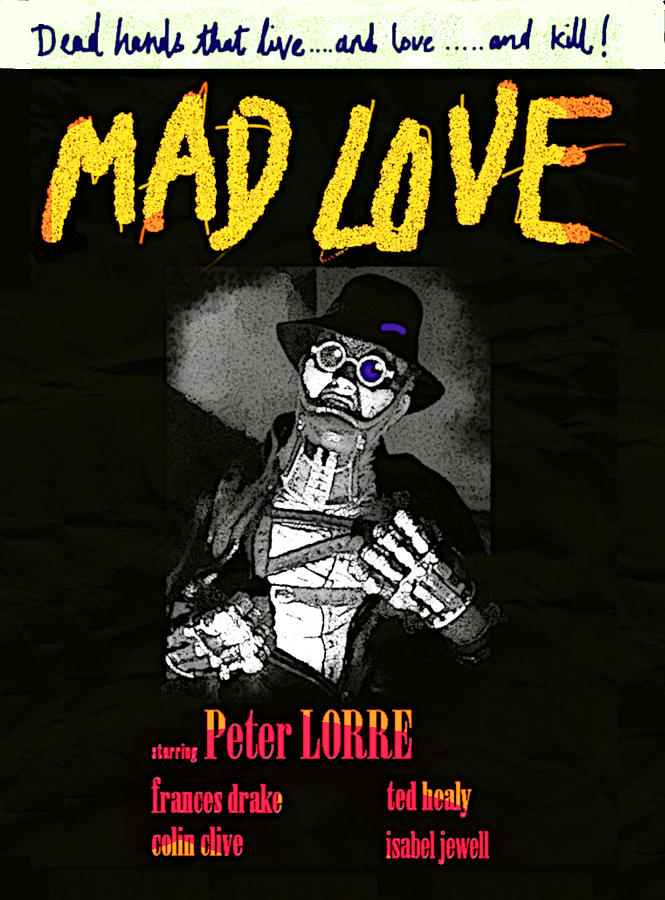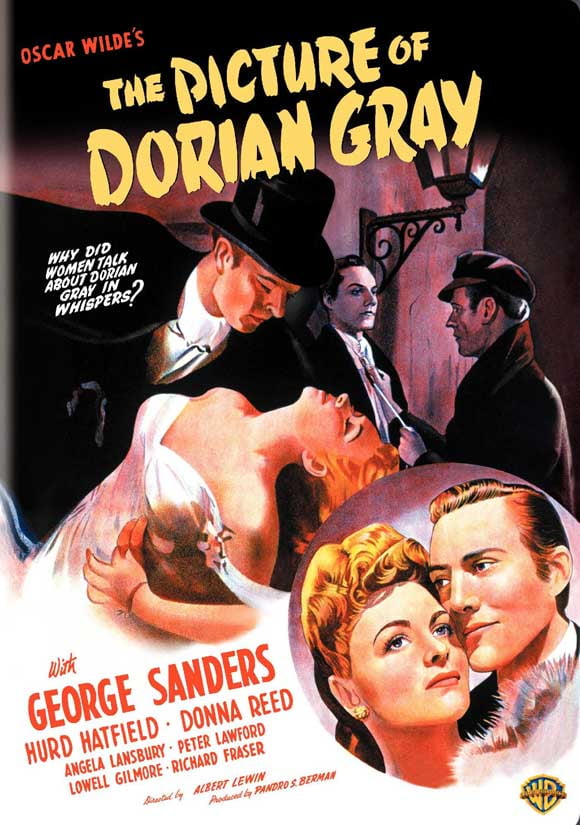As Halloween is tomorrow, I wanted to do just a little post in connection with the holiday. I thought it should be useful as well, so here are three classic movies that are perfect for Halloween!


1. Mad Love (1935) : This is definitely the worst movie on the list, but it was just so perfect for Halloween, I couldn't resist adding it. From what I remember when watching, a creepy doctor (Peter Lorre) has a *mad* crush on this one actress, and to get her to like him he offers to do surgery on her pianist husband's hands after a terrible accident. Only in this particular case, the cure is worse than the problem, as Mr. Crazy replaces the pianist's hands with a dead serial killer, knife-thrower's hands. This may not sound like the worse thing ever, but it turns out that the hands still have a desire to kill!!!! It's as crazy as it sounds. I would recommend it if you want a good laugh, although I must state that there is one part in the movie that is actually quite frightening. It's when Mr. Crazy is coming home from being dressed as the ghost of the knife-wielding serial killer (again, as crazy as it sounds) and the main heroine is in his house and is trying to find a place to hide. It's probably the best part in the movie, as it really is scary. Perfect for a G-rated Halloween! Well, maybe PG.
2. The Picture of Dorian Gray (1945) : This one is actually one of my favorite movies. I won't disclose too much, as I want to write a more in depth review some day. If you don't know the classic story by Oscar Wilde, here's a little bit about that: Dorian Gray is a young, handsome man who wishes to never grow old. In his desire for eternal youth, he gives away his soul. Instead of his body growing old and ugly, Dorian Gray will remain forever young, and a portrait of him shall bear the marks of his evil life. It's a really great story, and the movie is quite a work of art. It illustrates the effect that each evil deed one commits has on one's soul. It's very scary and the whole film is moody and dark. It's also very entertaining and beautifully shot, and all the actors are top notch. I would recommend it to anyone. We all watched it last Halloween and it was just perfect.
3. The Thing from Another World (1951) : Don't be fooled by the cover of this movie. It's actually really fun! There were a lot of cheap sci-fi horror films made in the 50's, so you might be a little wary when trying this one out, but never fear, it's rather good! The plot, roughly speaking, is this: An American military base in the arctic is nonplussed when a little shuttle from outer space comes crashing into the ice outside their research center. They don't know what it is, but they sure as heck soon find out, as a monster comes out in the night and starts to kill the sled dogs, feasting on their blood. It's not gruesome, but it is pretty scary when they find out that the monster is made out of plant material and grows on blood. Most of the movie is the hero and his men (along with his girlfriend who just happens to be there and is pretty fun) trying to find ways to stop the monster from eating them all up. The characters come up with many ingenious ideas and the acting is decent. It is never too serious either, so you can enjoy some horror without being really horrified. Howard Hawks directs the movie, and he does not disappoint. The Thing from Another World is one fun movie, that's all I can say.
Well, there you have it. Three classic movies that I whole-heartedly recommend you watch on the scariest of all holidays, or whenever you wanna be scared, but not too scared. Have a happy Halloween!!!👻🕷😈
